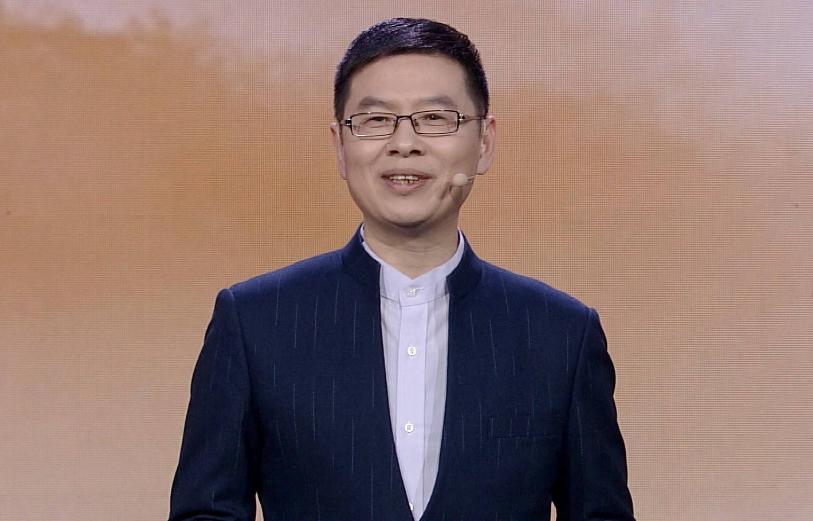Among the mentors of the "Chinese Poetry Conference", the author likes Kang Zhen's humor and atmosphere, Mengman's talent and grounding, Yang Yu's gentleness and atmosphere, and Wang Liqun's stability and easy-going. But every time Li Bo is mentioned, the author is full of touch and admiration.
I was moved that he was able to withstand the pressure and insist on creating as always. Now very few scholars are willing to publish their own poems, after all, everyone knows that if they are not careful, they will be picked out by netizens for various problems. Instead of this, it is better to comment on the works of the ancients, why bother yourself. But Li Bo is not like this, he must insist on his own originality. Just rushing this persistence and courage is convincing.

Admire his creative level. There are not many cultural celebrities in modern times who also understand the rhythm of poetry, and Li Bo belongs to one of them. At the same time, Li Bo is also one of the scholars who can master both ancient and modern poetry, which is also rare.
Earlier, the author shared with you a lot of li bo's modern poems. In this issue, I want to tell you about one of his ancient poems. It is quite interesting that when he posted this poem on Weibo, he was singled out by netizens twice the so-called "hard wounds", did he really write it wrong? First look at Li Bo's original poem:
"Into the Night to Chang'an With Nostalgia"
The four wilds are twilight and the old dreams of Chang'an are many.
At that time, the ridge was on the moon, and it was still to the mountains and rivers.
Judging from the title of the poem, this poem should have been written by Li Bo when he was in Xi'an. Judging from the whole poem, it is indeed a good work. At least in the ancient poems created by modern people, the overall vocabulary is relatively authentic.
The first sentence, "Four Wild Twilight Clouds", begins with a big stroke. In the past, Lu You, a great talent of the Southern Song Dynasty, wrote in the poem "Feelings of Feelings of the Southern Xichuan Gate of dengjian": The old man did not see the twilight cloud, and the guest wanted to return to the spring and aquatic life. Twilight meets the evening clouds, and there is a poetic scene. Li Bo also deliberately added a larger curtain to this autumn scene: the vast four wildernesses. These 5 words, atmospheric, deep, very clever.
The second sentence, "Chang'an Old Dreams", shifts from writing scenes to writing people. The first sentence writes the scene is the magnificence of space, and the last sentence writes the mood with emphasis on the span of time. The twists and echoes of the two sentences are very clever. In terms of layout and structure, Li Bo has always done a good job, and this time is no exception.
The last two sentences are also quite meaningful, "Ling Shang Moon" shines on the earth, which makes the poet have some feelings. The moonlight is still the same, the mountains and rivers are clear, and the spirit of the moon and the magnificence of the mountains and rivers are contrasted, and the two are very magnificent.
Looking at Li Bo's poem, the layout is exquisite, and the choice of imagery is in place, which is worth reading. But it is such a poem that has been singled out by netizens in two "flaws":
First, some netizens suggested that the second sentence of "Chang'an old dreams" should be changed to "Chang'an old dreams".
The reason why netizens think it is better to change it this way is because there is already an "old" of "still" in the 4th sentence, so that after the change, you can avoid heavy words. Generally speaking, it is not recommended to have a problem of heavy words when writing ancient poems, if it is not necessary.
However, if you look at the Tang and Song poems, you will find that the number of works that use "old dreams" in classical poetry is far greater than the use of "old dreams". Because the word "old dream" carries a kind of sadness. Coupled with the fact that many predecessors wrote this way, over time it became a more fixed usage. Therefore, Li Bo would rather use "old dreams" in the whole poem than use "old dreams", which is justified.
Second, some netizens suggested that the last sentence "still to the mountains and rivers" was changed to "still illuminate the mountains and rivers".
For this change, the author believes that it is inferior to the original poem. Li Bo's "to" word can actually be interpreted in two ways: first, it can be seen as anthropomorphizing the "Lingshang Moon", which is like a messenger of the past, coming to a new mountain and river; second, if the "Lingshang Moon" is understood as moonlight, it can highlight the agility of the moonlight slowly shining, it is not a whole piece of it shines on Chang'an City at once, but the moon shadow is transferred.
In this way, the use of the word "to" is not only more flexible, but also makes the whole poem more layered. Therefore, not only can it not be changed, but it is also a clever point of the whole poem.
In summary: The author personally believes that there is no so-called "two hard wounds" in Li Bo's poem. However, after all, no matter what aspect of modern people writing ancient poetry, it is difficult to reach the level of the ancients, plus the taste of poetry is originally a matter of opinion, even if it is to express the same image, everyone will inevitably have a completely different way of understanding. Therefore, we also welcome your suggestions for further revision of this poem, and we will discuss it together.